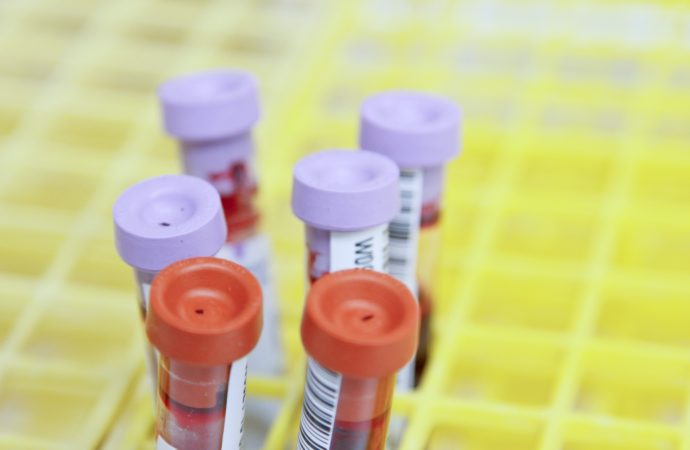The field of cancer diagnostics is undergoing a revolutionary transformation with the emergence of rapid cancer blood tests. These innovative technologies offer the potential for early detection, personalized treatment approaches, and improved patient outcomes. However, as these tests gain popularity, questions arise regarding their accuracy, reliability, and ethical implications. In this article, we delve into
The field of cancer diagnostics is undergoing a revolutionary transformation with the emergence of rapid cancer blood tests. These innovative technologies offer the potential for early detection, personalized treatment approaches, and improved patient outcomes. However, as these tests gain popularity, questions arise regarding their accuracy, reliability, and ethical implications. In this article, we delve into the promise and challenges of rapid cancer blood tests and the implications they hold for the future of cancer diagnosis.
Traditionally, cancer diagnosis has relied on invasive procedures, such as tissue biopsies, which can be costly, time-consuming, and uncomfortable for patients. Rapid cancer blood tests aim to overcome these limitations by using a simple blood sample to detect cancer-related biomarkers and genetic mutations. The convenience and non-invasive nature of these tests have captured the attention of researchers, clinicians, and patients alike.
One of the key advantages of rapid cancer blood tests is their potential to detect cancer at an early stage, when treatment options are most effective. By identifying cancer-specific markers or genetic alterations, these tests can provide valuable insights into an individual’s risk of developing cancer or the presence of cancer cells in the body. Early detection can significantly improve survival rates and allow for timely intervention and personalized treatment strategies.
Moreover, rapid cancer blood tests hold the promise of monitoring treatment response and disease progression. By analyzing circulating tumor DNA or other cancer-related markers, these tests can provide real-time information about a patient’s response to therapy. This enables healthcare providers to make informed decisions regarding treatment adjustments, leading to more precise and effective care.
While rapid cancer blood tests offer exciting possibilities, they are not without challenges. One of the primary concerns is the accuracy and reliability of these tests. Ensuring that the tests deliver consistent and reproducible results is critical for their widespread adoption. Rigorous clinical validation studies are needed to establish the sensitivity, specificity, and overall performance of these tests across diverse patient populations.
Ethical considerations also come into play when discussing rapid cancer blood tests. The potential for false-positive or false-negative results raises concerns about unnecessary invasive procedures or delayed diagnoses. Additionally, the accessibility and affordability of these tests must be addressed to ensure equitable access for all patients, regardless of their socioeconomic status.
Regulatory oversight is another crucial aspect. As rapid cancer blood tests are introduced into clinical practice, regulatory bodies must establish clear guidelines and standards to ensure the quality and safety of these diagnostic tools. Collaborations between researchers, clinicians, and regulatory agencies are essential to establish robust regulatory frameworks that safeguard patient interests.
Despite these challenges, the potential benefits of rapid cancer blood tests cannot be ignored. Early studies have shown promising results in various cancer types, including breast, lung, and colorectal cancer. As research progresses and technology advances, it is expected that the accuracy and reliability of these tests will continue to improve.
In conclusion, rapid cancer blood tests have the potential to revolutionize cancer diagnosis and treatment. The ability to detect cancer at an early stage, monitor treatment response, and personalize therapeutic approaches can significantly impact patient outcomes. However, ensuring the accuracy, reliability, ethical considerations, and regulatory oversight of these tests are crucial for their successful integration into clinical practice.
As researchers, clinicians, and regulatory agencies collaborate to address the challenges and optimize the potential of rapid cancer blood tests, the future holds great promise. The quest for improved cancer diagnostics continues, and rapid cancer blood tests may well be the game-changer that leads to earlier detection, more effective treatments, and ultimately, better outcomes for patients.

















Leave a Comment
Your email address will not be published. Required fields are marked with *